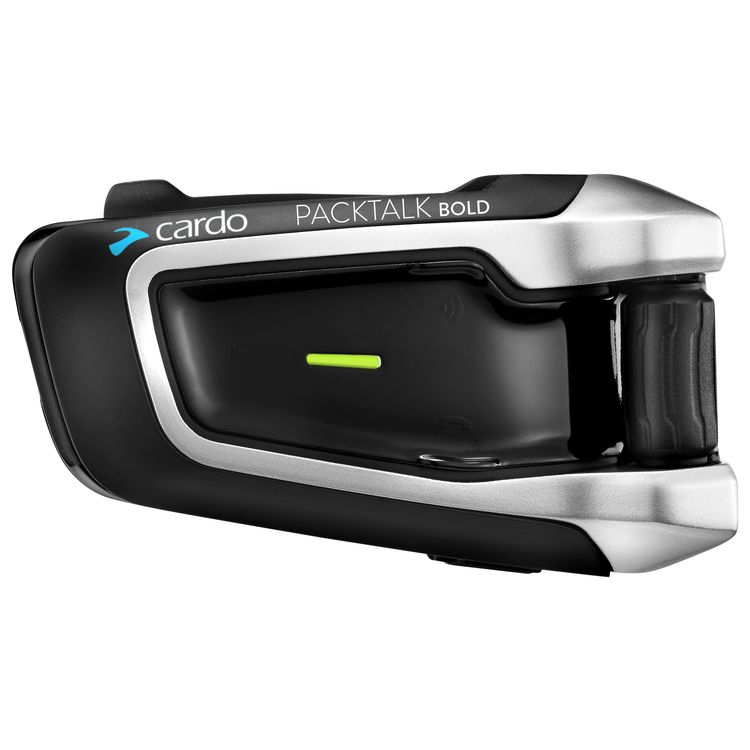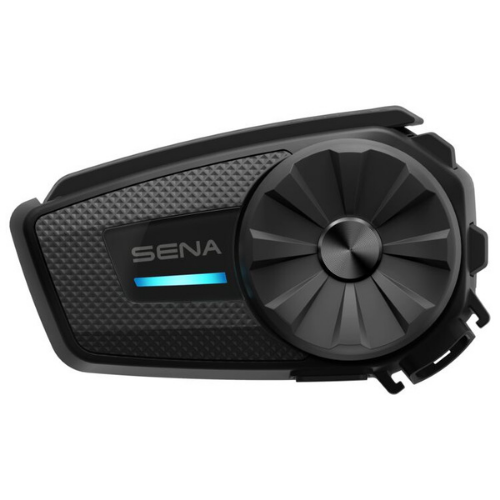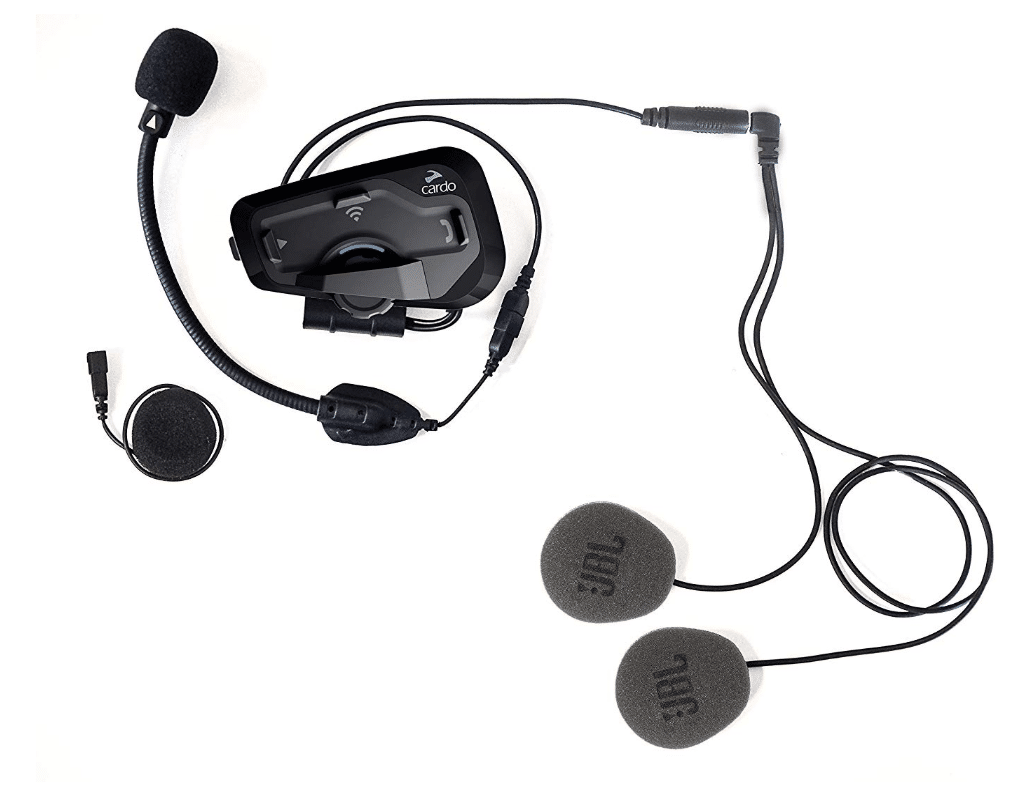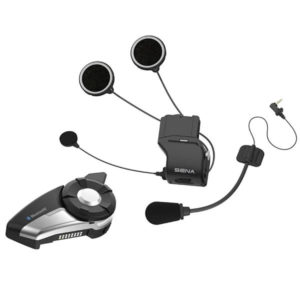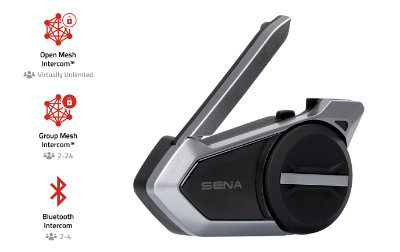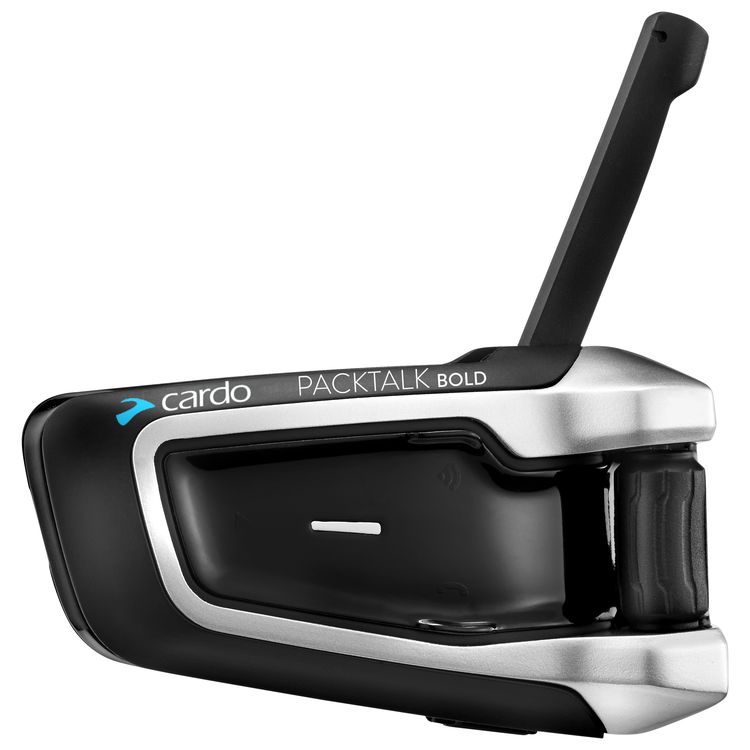Companies like Cardo and Sena have changed the motorcycle headset landscape with their mesh intercom systems that let you seamlessly connect multiple riders at once.
As this technology has continued to improve, I’ve kept up with the flagship models of both these brands. Let’s look at how they compare face to face and what features they have that really stand out so you can pick the right brand for you.
Cardo Systems Overview
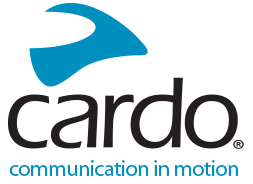
Cardo began as one of the first companies making Bluetooth headsets for cell phones clear back in 2003. Then one of their employees who commuted to work by motorcycle had a great idea: a mesh network that would allow multiple riders to communicate at once.
Since then, Cardo has been a leader and innovator in the motorcycle communication industry, specializing in headsets that you can easily insert into your helmet. Their offices are based in Plano, TX.
Sena Overview

Sena is a bit older than Cardo, having started in 1998. They’re a communications technology company that doesn’t just make great headsets for motorcycles but many other purposes like industrial noise cancelation and work team intercoms.
When it comes to motorcycle communication, their claim to fame is their technological innovation. They regularly lead the way in Bluetooth connectivity and mesh network technology, so they have a wide range of products that fit specific needs and situations.
Sena has offices all over the world, including Europe, China, and Korea. Their North American offices are located in Irvine, CA.
Cardo vs. Sena Face to Face
Reliability and Updates
Both brands produce reliable products, especially when it comes to hardware. As far as software and updates, I’d have to give a slight edge to Cardo.
Both brands provide updates. However, Sena rolls out new versions and patches more frequently. It can be a hassle to constantly run into an update when you’re ready to go. I’ve also heard people complain that Sena seems to “beta test” its updates on customers.
The result is that you run into more surprise connectivity issues with Sena. Cardo’s more reliable in this way, and connecting goes uniformly and smoothly each time.
For both brands, downloads and updates are easily accessible through their websites and proprietary apps and programs for Windows, iOS, and Android.
Our Winner: Cardo for its more robust software
Technology
Both Cardo and Sena are industry-leading companies when it comes to communications technology, especially for motorcycles. Sena is a larger company with research and development in other product lines, not just motorcycles, so they have more innovations.
For example, thanks to their industrial intercom product lines, Sena has done a lot of research into noise cancelation. As a result, they beat out Cardo when it comes to this type of tech.
I should mention specifically the mesh network technology. Cardo uses their proprietary Dynamic Mesh Communication technology, or DMC, while Sena uses Mesh Intercom technology.
Both are solid mesh networks with little to choose between them.
Our Winner: Sena for its innovation.
Device Range
Sena’s intercom systems like the Sena 50S have a slightly better range than devices like the Cardo Packtalk. They can reach about 1.2 miles between two riders versus the Packtalk’s 1 mile.
However, for both brands, the total range for a group of riders is about 5 miles. This means the connection can leapfrog from one rider to another up to that range.
Our Winner: A tie – both have a comparable range.
Build Quality
Although there isn’t much of a competition when it comes to build quality, I have to give the Gold to Cardo. Cardo intercom systems are durable and dependable and often last longer than the cycle of technology, meaning you’ll want to upgrade to new tech long before the device breaks down.
This isn’t necessarily the case with Sena. Their devices are more prone to wear and tear and require a lot more maintenance.
Our Winner: Cardo for their durability
Sound Quality
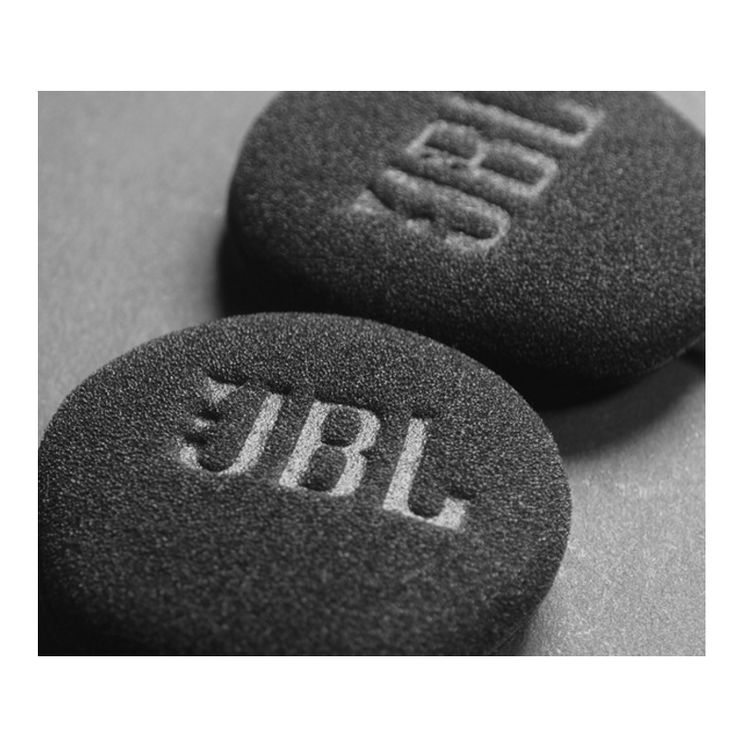
Both Sena and Cardo have great sound quality, better than you’ll get by trying to squeeze motorcycle earbuds into your helmet. In the case of Cardo, the company has partnered with JBL to use their speakers in their systems.
This is why I’d go with Cardo if sound is really important to you. Sena’s speakers are great, but they don’t have the benefit of speakers manufactured by a name-brand speaker producer that specializes in sound quality.
Our Winner: Cardo for their JBL speakers
Water, Dust and Weatherproofing
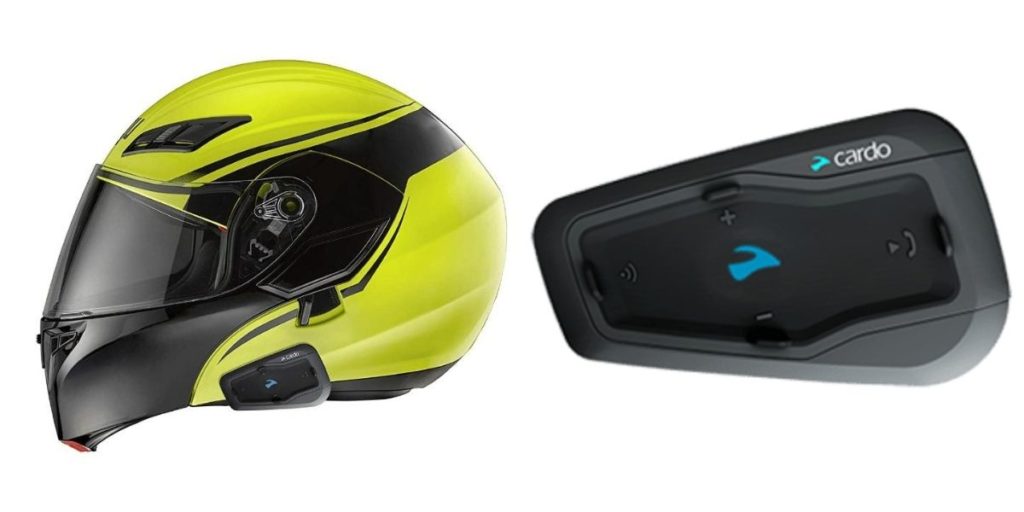
Cardo products have superior protection against the elements. Specifically, Cardo’s Packtalk line is IP67 rated. The 6 means they’re impervious to dust, while the 7 means the devices can be submerged in water up to a meter in depth for up to 30 minutes.
Cardo advertises their products as great for jet skiing or other watersports and guarantees them against a certain amount of water damage. You can use Cardo systems confidently when riding in the rain.
This isn’t the case for Sena products, which don’t have any waterproof rating. Depending on how much you trust your helmet, a sudden storm would mean taking cover or risking ruining the intercom system.
Our Winner: Cardo due to its excellent IP rating.
Battery Life
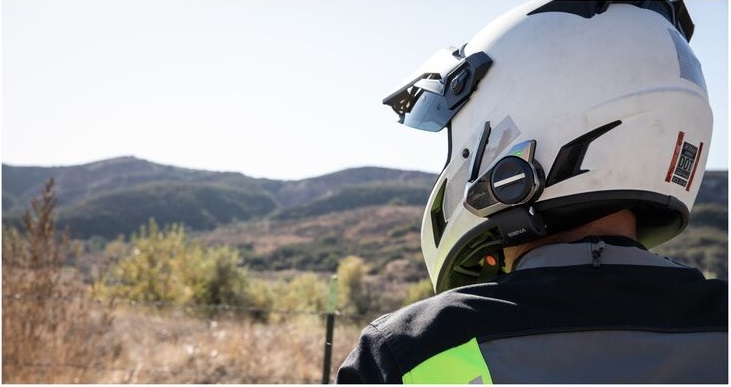
Both Cardo and Sena devices have similar battery lives, but Sena has a slight advantage. The latest Sena models like the 50S can last up to 14 hours if you’re communicating over Bluetooth, while they can support mesh network communication up to 9 hours.
The Cardo Packtalk has slightly less battery life: 13 hours over Bluetooth or 8 hours over the DMC mesh network.
Our Winner: Sena for superior battery life.
Price Ranges
Both Cardo and Sena produce top-shelf intercom systems that can honestly be a little pricey. That said, Sena’s flagship systems, like the 50S, are a bit less expensive than their Cardo counterparts, like the Packtalk.
Plus, Sena has a bigger range of products in general, and if something like the 50S is outside your budget, you’re more likely to find a simpler device that still meets your needs.
Our Winner: Sena for its range of products.
Warranties
Cardo products have better warranties than Sena products, usually 2 years versus 1. Cardo warranties also tend to be more inclusive.
As I mentioned, they’re more likely to cover water damage since Cardo makes their systems waterproof. A better warranty means you can be more confident in the product’s quality and feel more financially secure buying it.
Our Winner: Cardo has a better warranty.
Customer Service
Cardo is a smaller company, so they naturally have better customer service. That said, if you’re outside the US, Sena is a bit more accessible. That’s because they have numbers and email addresses available for offices in the US, France, and Germany, as well as Korea and China. Cardo only has customer support numbers in the US and Germany.
If phone calls make you nervous, Sena also has a convenient virtual assistant on their website where you can type your questions. Both companies provide a way to contact support using an online form to start a dialogue over email.
Our Winner: A tie
Stand-Out Features
Cardo
Waterproofing
As I mentioned, Cardo intercom systems are built to be waterproof, unlike their Sena counterparts. They’re even rated against dust and water with a designation of IP67. Those who do off-road riding or live in places with a lot of rain should probably go with Cardo.
Voice Command
Newer Sena models like the 50 series do have voice command, but in my opinion, it still falls short of Cardo’s. With Cardo models like the Packtalk, it’s easy to access your phone through its virtual assistant by saying “Hey, Siri,” or “OK, Google.” Not only does this let you control your music and make calls, all hands-free, but it helps you more easily use the intercom system.
Sena
Communication for Big Groups
Sena intercom systems support larger groups of riders than their Cardo counterparts, and by a wide margin. For example, the Sena 50S can connect up to 24 riders, while the Cardo Packtalk Bold can only connect 15. If you like touring with really big groups, consider Sena.
Bluetooth 5
At the time of writing, the newest Sena models like the 50 series have Bluetooth 5 technology, while the Cardo models still use the older Bluetooth 4.1.
Bluetooth 5 has faster connection speeds, up to 2 Mbps, versus Bluetooth 4.1’s 1 Mbps. Plus, it has a longer range—200 meters versus 50 meters—and lower power requirements. (source)
I have no doubt Cardo will be upgrading their products to Bluetooth 5 shortly. Still, in the meantime, if you plan to be using your intercom’s Bluetooth phone connection for a lot of things like calls and music or want to put it in your luggage farther away from your device, Sena is a better choice.
Final Thoughts
Cardo and Sena both make quality motorcycle intercom systems that lead the market in mesh network technology.
I usually recommend Cardo because I prefer the tough construction that includes waterproofing and the smoother connectivity and voice controls. However, certain people may benefit from Sena’s longer battery life and support for larger groups of riders.
